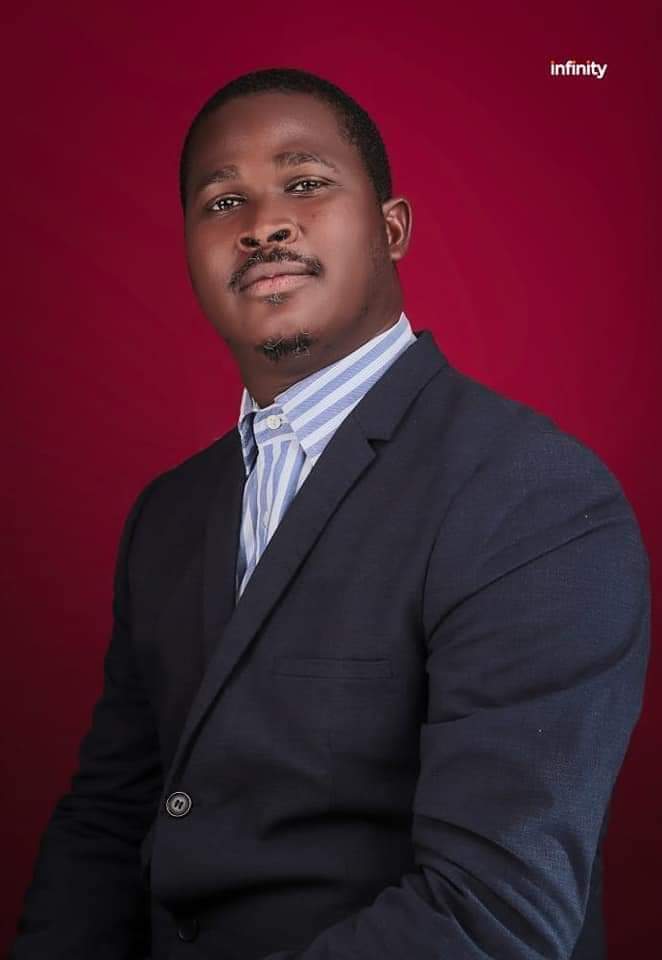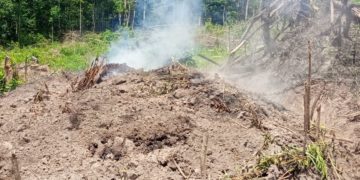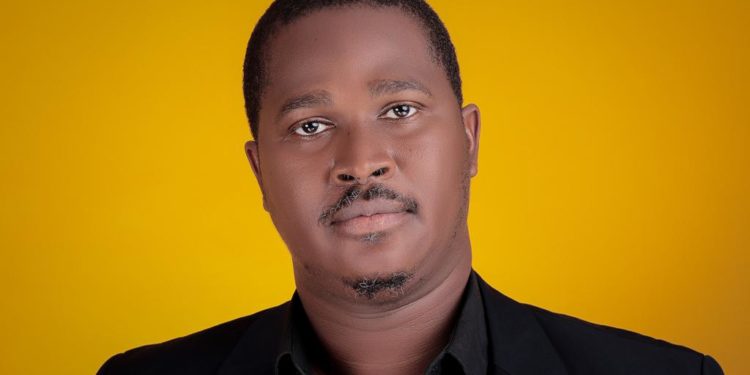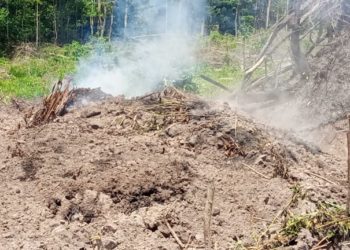Ishmeal Alfred Charles reflects on life as a former child soldier
Sierra Leonean rights campaigner, Ishmeal Alfred Charles, is known best for his work as a humanitarian, campaigning for healthcare services provision. But very few people know about his past as a child soldier in the country’s brutal [1991-2002] civil war.
In our second report on the 20th anniversary of the end of the war, we talked to the founder of the Sick Pikin project, a charity that raises fund to support the treatment of children suffering from neglected and life-threatening diseases, about his views on post-war Sierra Leone.
ManoReporters: How do you feel on this day?
Charles: I feel really very mixed in thought, because on a day like this we should be able to count the successes that Sierra Leone has recorded when it comes to dealing with governance related issues or rights-based issues or the progress that we should have made as a country in terms of the socioeconomic situation and livelihoods of the impoverished people and those who have felt socially excluded and marginalized.
It’s still a long way to go, and because of that, at this time, my feelings are mixed.
I feel like we are making some progress, especially with the recent constitutional review process, even though more needs to be done. We now have state institutions that were recommended by the Truth and Reconciliation Commission (TRC), which is helping to uphold democratic principles and standards.
But the fact remains that a lot of people are still dissatisfied and unhappy and we need to work on that.
We should be able to disarm the mind [of the people]. The mistake that we made as a country was when we disarmed the [the people of] guns, we didn’t disarm their minds. And so that left a major challenge.
20 years on, do you think Sierra Leone is better off given all the issues attributed to the causes of the war?
I feel we have made some progress, but there is a lot more that needs to be done, especially when it comes to the issues that caused the war – corruption, nepotism, tribalism, regionalism; the reality that people feel socially excluded from a lot of different things. I feel there is a lot more we need to do.
Some progress have been made. Corruption has become a little bit expensive, but a lot more people can still afford it.
We saw a video in recent times, even though the police are still denying the reality, but we still see corruption happening.
States institutions do not serve diligently.
We do not have proper systems and mechanisms to complain about public servants if they don’t do what they are supposed to do rightly. You go to public institutions where you are supposed to access, say national identification documents or some documentation, those civil servants are being paid for their job and they still frown and speak with negative attitude. People who do not have ‘class’ are mistreated.
Those feelings are actually the reasons why we went through the civil war, when many people felt that they were been disadvantaged.
The legal system needs to be more robust. Men and women must stand on the same platform when it comes to gender related issues, but at the same time gender equity must be looked into, so that those who are not ‘tall enough’ will be able to stand the test of time and be given equal opportunity.
You were one of many child soldiers who fought in the war. How has that experience shaped your life in the last 20 years?
It shaped my life very well. I have actually allowed my experience going through those difficult times to shape the way I handle things more critical, when it has to do with humanity and providing support for my fellow humankind, knowing fully how difficult life can be and how tough it is for some people.
Reflecting back from the reality and what I have been through the difficulties and the moment of realities that I have faced with life, definitely it has shaped my life.
It has helped me to understand what it means to be hungry, what it means to be in difficult situations, what it means to be in circumstances that are not regular. It makes me to understand what to be in the jungle means.
My journey today as a humanitarian is a pointer to that reality. And that’s how I have been able to get things done.

I understand not all child soldiers were as lucky as you are in terms of opportunities in life. Can you paint a picture of how life has been like for others?
One of the significant challenges many former child soldiers face is that a lot of them were not provided with the requisite support to go through the proper transition.
Many people went through the demobilization and reintegration programme but they were not properly reintegrated. The demobilization process didn’t disarm their minds. It disarmed them of the weapons but didn’t provide them with the psychosocial support that they needed to make the right decisions.
The training lasted for mostly three months and six months. It’s impossible for an auto mechanic, someone who wants to fix vehicles, for instance, to be trained for just six months. Or someone who wants to do proper woodwork…That’s why you find out that a lot of people decided to sell the toolboxes that were given to them at the disarmament, demobilization and reintegration programme.
And this is the reason why many young people today are into Poda Poda [commercial transport service] driving or [commercial] bike riding, or they are actually involved in crime as foot soldiers. Many are waiting for any opportunity that presents itself to be able to do what they can for their survival.
Where do you think things went wrong with regards the plight of those former child soldiers who maybe going through rough times.
The fact that they decided to create those crash programmes was more or less for me a clear pointer that the state was not very sincere in its desire to fix the problem by properly reintegrate those young men into society and give them the opportunities they need to be able to settle and get them properly disarmed in their minds. And that is the reason for the prevailing unfortunate reality.
A lot of people could have been properly reintegrated and provided with a proper training programme, apprenticeship and mentorship, so that they could be useful in society. Instead, what they did was provide a crash programme, ran through it with very high speed, in six months, and then provided them with tools. That is why the tools ended up in shops for sale. The people didn’t have the requisite skills for them to actually utilize the tools.
As a former child soldier, I didn’t have the opportunity to be able to get through those programmes because my mother didn’t actually want me to bring my experience to the public.
Is it late to turn things around for those who are suffering now? What can be done in your view?
It is already too late for a turn around. The truth of the matter is a lot of these people are now old, and they didn’t have the opportunity to get things right. And so society has failed them. And because they have failed them in such a bad way, it’s very critical for us to have a review of how we can be able to get things done going forward.
It’s very hard to train old dogs. Nonetheless, the only possibility now could be providing them with support in the form of scholarship for their children, for those who have children, or livelihood mechanisms for their families and for themselves, so that they can be responsible and get things done to help them survive.
What in your view is the main threat to the peace of the country presently?
The main threat of peace remains the same issues that were pointed out in the TRC. There is still corruption – widespread. There are still the issues of nepotism, tribalism, regionalism…
‘You know whom I am’ still exists in our society and communities, and a lot of young people still feel socially excluded and those who are less privileged and uneducated are actually sitting as foot soldiers for any issue that may come up. So when you have such a society and a lot of former child soldiers are there, not engaged and not properly disarmed in their mind, they still feel like the easiest way to get things done or express their anger is through violence.
And when you have a society that’s in that way, there must be some sort of national programme for psychosocial support that would enable and provide heeling for everyone.
That is why in post conflict Sierra Leone, for many people it’s very easy for them to fly out of their emotions and get angry for nothing. You find people on the streets who can blast and react to very small issue in very strong ways. This happen because they are so broken.




















